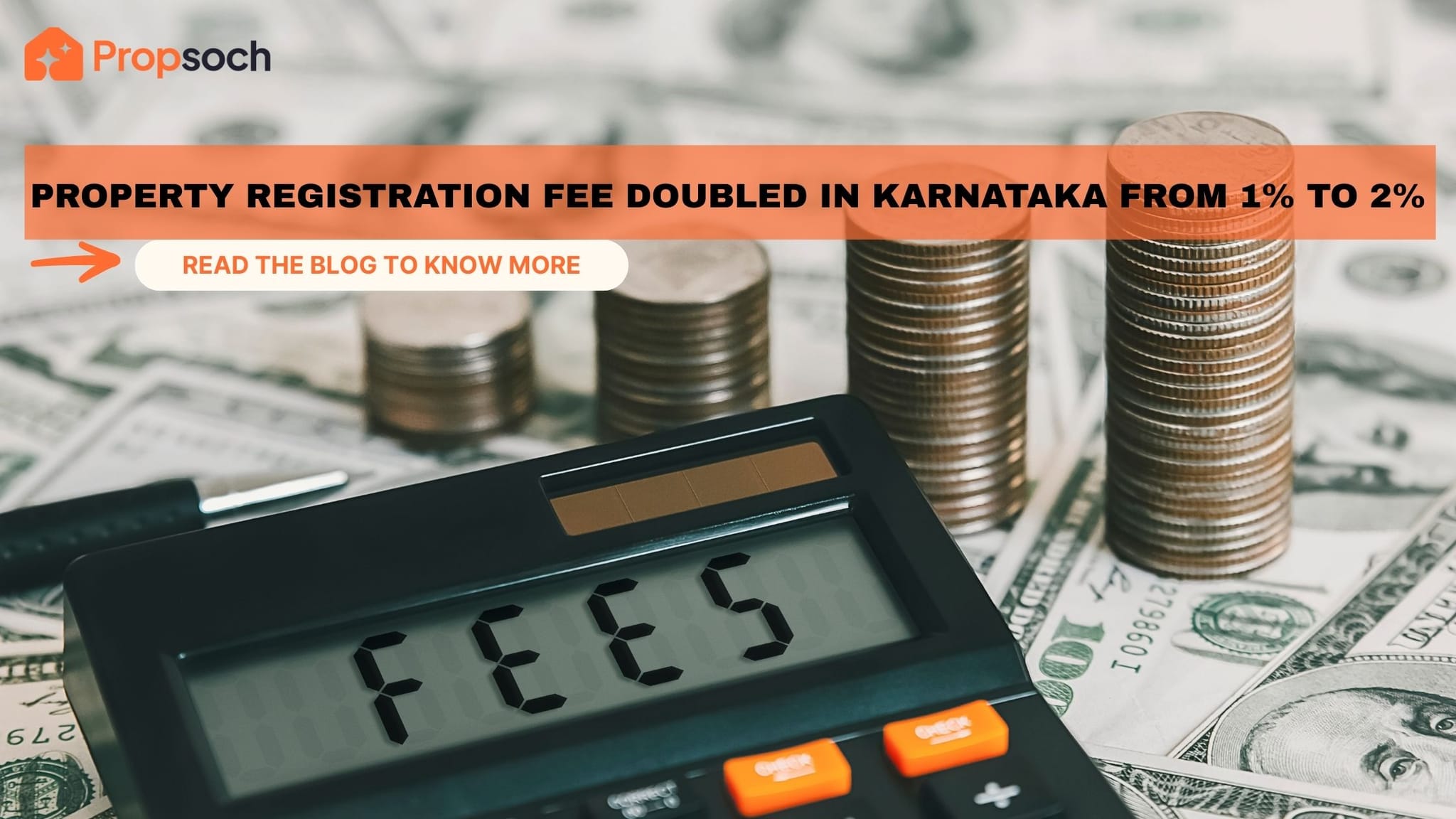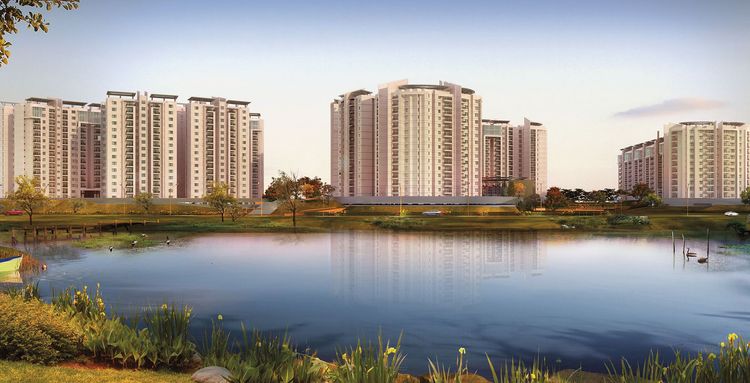On August 29, 2025, the Karnataka government officially announced a major change in property transaction costs: the property registration fee has been doubled from 1% to 2% of the property value. The change took effect from August 31, 2025 and applies across the state to all immovable property registrations.
This decision, framed as a “rationalisation” by the government, is being seen as one of the most impactful changes to the cost of buying a home in Karnataka in recent years. Here’s a breakdown of what this means, why it was introduced, and how it impacts you as a homebuyer.
What Changed?
- Registration Fee: Increased from 1% → 2% of property value
- Stamp Duty: Remains at 5%
- Cess/Surcharge: ~0.6% (unchanged)
In total, the transaction cost of registering a property has gone up from ~6.6% to ~7.6% of its value.
For example:
- A ₹1 crore home that earlier required a ₹1 lakh registration fee now requires ₹2 lakhs.
- A ₹75 lakh home now attracts ₹1.5 lakh in registration fees, up from ₹75,000.
The hike also covers lease agreements, advance sale agreements and even bank mortgage registrations, effectively doubling the fee on multiple property-related transactions.
Why the Fee Was Increased
The state government justified the hike with two primary reasons:
- Revenue Needs: Karnataka’s stamp duty and registration collections fell short in FY 2024-25, ₹22,500 crore against a ₹26,000 crore target. With current collections 35% below target, the hike is expected to generate an additional ₹3,000 crore this financial year.
- Administrative Strengthening: Officials state that the higher fee will “strengthen administrative processes and improve service delivery” in property registration while keeping Karnataka competitive compared to states like Tamil Nadu (9%) and Kerala (10%).
What This Fee Hike Means for Homebuyers: Key Impacts & Insights
1. Increased Upfront Cost & Budget Stretch
- For a ₹75 lakh property, registration fees rise by ₹75,000.
- For a ₹1 crore property, it’s ₹1 lakh more.
- Total government levies now add up to 7.6% of the property value, making upfront cash outflows heavier.
2. Impact on Affordability & Loan Plans
- Budget-conscious buyers may feel the squeeze more, since even a 1% increase adds up to tens of thousands of rupees, potentially forcing a rethink of down payments, loan eligibility or EMI planning.
- Buyers with higher financial flexibility are likely to absorb the additional cost more easily but the hike could still influence decision-making, especially for those evaluating return on investment.
- Overall, the fee revision may put some pressure on the affordable housing segment where margins are tighter, while higher-ticket transactions are less likely to see significant demand disruption.
3. Psychological & Market-Wide Effects
- Higher transaction costs may lead to deferred purchase decisions, which is affecting overall real estate demand.
- Critics also fear more undervaluation of properties in sale deeds to escape higher charges, increasing risks of informal transactions.
4. No Escape in Other Transactions
- Even if you’re not buying, higher fees apply to leases, agreements and mortgages, broadening the financial impact.
5. Governance Improvement, But at a Cost
- The state is simultaneously pushing reforms for fraud prevention, transparency and digitisation of property records.
- While positive in the long run, these don’t offset the immediate affordability shock for buyers.
Bottom Line
For homebuyers in Karnataka, this fee hike will directly affects how much cash you need upfront. While the government aims to bridge revenue gaps and modernise systems, the timing has sparked criticism given the rising cost of living.
If you’re planning to buy a home, factor in the extra 1% cost when budgeting. For many, this may mean recalibrating loan applications, delaying purchases or reprioritising property choices.
The coming months will reveal whether the market absorbs the change or if Karnataka sees a noticeable slowdown in registrations.








